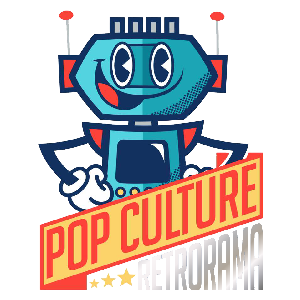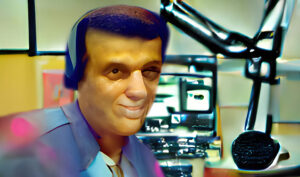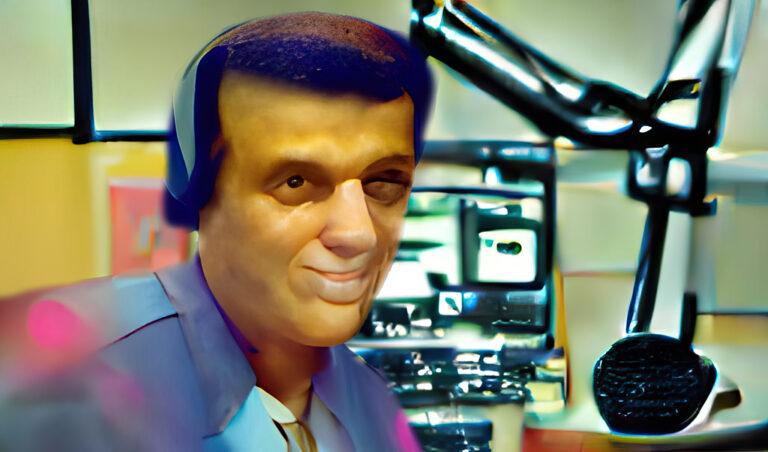It was a show whose credits had an unlikely concentration of A-list talent…so why did it only last a month on the air?
If there was ever a genre show that seemed to have everything going for it prior to launch, Space Rangers would’ve been it. Created by Pen Densham, who had gone from a career as a Canadian TV scriptwriter to Hollywood’s A-list by serving as a producer on the back-to-back theatrical hits Robin Hood: Prince Of Thieves and Backdraft, Space Rangers was one of the more high-profile mid-season science fiction series to debut at the beginning of 1993, debuting days after the premiere of Star Trek: Deep Space Nine and a few days before the pilot movie of Babylon 5. Like Babylon 5, Space Rangers was on the cutting edge of special effects, and its effects artists had arguably the best pedigree in the business.
Visual effects for Space Rangers were handled by Industrial Light & Magic, a company which had previously produced effects for the pilot episode of Star Trek: The Next Generation. However, things had changed significantly since 1987. The advent of computer generated imagery was a special effects game changer, and ILM – once almost the only game in town – suddenly found itself with serious competition. Computer graphics were in the earliest stages of usurping model work as the preferred means of depicting spacecraft, and while the differences between early CGI and miniature models was still distinguishable, the gap would be closing fast.

The show’s senior producer was a rising Hollywood heavyweight: Robert Halmi Jr. was president of his father’s company, RHI Entertainment, at the time Space Rangers was produced; a year later, Hallmark Cards purchased RHI, and Halmi became president of Hallmark Entertainment and founded the Hallmark Channel. He has been the executive producer of countless miniseries and movies-of-the-week, including The 10th Kingdom, Dinotopia, The Infinite Worlds Of H.G. Wells, Earthsea, The Hogfather, and Tin Man, and would later be the executive producer of two Sci-Fi Channel series, Flash Gordon and Farscape.
Space Rangers promised to bring swashbuckling back to TV sci-fi – the antithesis of the common perception that the Star Trek shows were mostly cerebral talk and little action. Series creator Pen Densham gathered top-flight writing talent to help launch the series, including Gregory Widen (creator of the Highlander franchise) and Jay Roach (who would later go on to directing fame with the Austin Powers movies).

So how could the show fail? It was a new, unproven show scheduled on Wednesday nights in January, 1993, in a time slot where nearly everything on the other networks was established and had followings that weren’t likely to divert from their usual fare to sample a new sci-fi show. NBC’s Unsolved Mysteries probably held most of the audience that would’ve been interested in a new science fiction series; ABC’s popular coming-of-age shows The Wonder Years and Doogie Howser M.D. captivated part of the young audience (which might have otherwise been early adopters), and the rest of the youth audience was probably glued to the original Beverly Hills 90210 on Fox. All of these other series were established power players; by dispatching the Space Rangers to Wednesday nights, CBS was effectively sending them on a suicide mission. (Space Rangers also made a positively surreal lead-in to veteran cop drama In The Heat Of The Night, which aired after it on CBS.)
Also in the “not helping” department was the bane of many a science fiction saga: the network aired episodes wildly out of order, completely robbing any character arcs of their momentum or, for that matter, any kind of running order that made sense.

In any case, it simply wasn’t to be: CBS lost patience with the show, removing it from the schedule before the February 1993 ratings sweeps. And in retrospect, with its older-skewing audience that seemed unlikely to embrace a science fiction series of any kind, CBS didn’t seem like a good fit for Space Rangers to begin with. The show’s final two episodes only aired overseas, and it has only been released as a region 2 DVD intended for the British and European markets.
After filming only half a dozen shows, the cast dispersed to find new work. Jeff Kaake stayed on the Wednesday night schedule, joining the cast of Melrose Place briefly before moving on to other action drama series such as Renegade, The Sentinel and Viper. Marjorie Monaghan was later seen in the first season of Star Trek: Voyager before becoming the recurring character of code-named Martian resistance leader “Number One” on Babylon 5. She auditioned for the role of T’Pol on Star Trek: Enterprise, but lost out to Jolene Blalock.

Cary-Hiroyuki Tagawa, one of Hollywood’s most in-demand Asian actors, found steady work on the series Nash Bridges, while Jack McGee moved on to countless guest appearances on such shows as seaQuest DSV, NYPD Blue and Rescue Me. Clint Howard, one of classic Star Trek’s first-ever guest stars, continued his career as a busy character actor, including appearances in the Austin Powers movies directed by one-time Space Rangers writer Jay Roach. Italian-born actor Danny Quinn found work both in Hollywood and, later, back in his native Italy.

Series creator Pen Densham continued his career largely on the small screen, and a couple of years after the cancellation of Space Ranger he was on board as the executive producer of a much bigger genre hit, the successful Showtime relaunch of The Outer Limits, and not long after that, Showtime put Densham in the driver’s seat of another MGM revival, Poltergeist: The Legacy. He was also involved with the short-lived 2002 revival of The Twilight Zone on the now-defunct UPN network.
Composers Hans Zimmer and Mark Mancina, though their synth-heavy music for Space Rangers is probably not considered a highlight in either man’s career, both went on to bigger and better things. Zimmer, already an Oscar winner for Driving Miss Daisy, moved on to score Disney’s animated smash hit The Lion King. Mancina, who at the time was working for Zimmer’s Media Ventures studio, would be scoring big-screen successes such as Speed and Twister soon after his short stint at Fort Hope.

More favorable scheduling, and a network that “got” the show, might have helped Space Rangers stick around longer than a month on the air. As it is, it was a show that seemed to have all the right talent behind the scenes, from A-list writers and musicians to legendary ILM itself, to no avail – the Space Rangers always got the bad guys, but couldn’t get an audience.





+ There are no comments
Add yours